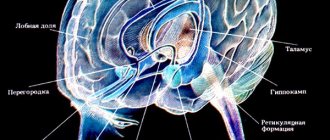Adequacy is a term considered within the framework of the whole society and individual situations. Today, as a rule, such criteria of human adequacy are identified as restraint of emotional reactions, social activity, sociability, setting goals and the desire to realize them, the ability to feel a wide range of feelings, and the correspondence of the emotional response to the situation. The concept of adequacy means a person’s compliance with existing circumstances, situations, expectations, established standards, views, and social norms. In epistemology, it means supposedly complete or absolute correspondence with something.
Basic meanings of the word
Adequacy is predictable physical, psychological or analytical repeatability in the similarity of actions, actions, reactions or situational moments. In relation to perception and thinking, the concept is defined as a faithful reproduction of the relationships and connections of the objective world.
Adequacy is compliance with someone’s idea of correctness, compliance with social rules and norms. Therefore, this concept is relative. This is the subjective point of view of a certain group of people.
In psychology, adequacy is the degree of explainability of an individual’s action, the correspondence of a behavior pattern to known behavioral models.
Who is adequate?
Adequate is a concept that emphasizes the compliance of an object with the surrounding reality, situation, expectations, standards of relationships and views, norms and rules. The word “adequacy” comes from the Latin “Adaequatus” - “equal”. In the theory of knowledge, this is complete or supposedly complete correspondence with something. Absolute adequacy is, to a certain extent, a hypothetical value the same as absolute truth and the criterion of truth.
Adequacy in a clinical setting is diagnosed by a psychiatrist, and in everyday life by anyone. The subjectivity of the concept is emphasized by the fact that the meaning embedded in it changes along with the development of society and the person himself. For example, people who are uneducated, in a fit of passion or religious goodness, have very different concepts of adequacy and inadequacy . Perhaps this is why inadequacy is often used as a label that can be applied to almost anyone if their words or actions do not fit into someone else’s picture of the world.
It is impossible to be “adequate at all.” You can be “adequate to something.” Therefore, adequacy is an additional characteristic of a living or inanimate object, an abstract concept:
- An adequate person is one who understands where he is, looks, expresses himself and behaves in accordance with written and unwritten moral norms, models or stereotypes of behavior. Someone who knows how to express himself the way he likes, but at the same time does not cause inconvenience to others.
- Adequacy as a personality quality is a measure of psychological state that allows a person to be a normal member of society.
- An adequate point of view is a manifestation of common sense, concentrated in personal opinion, assessment of what is happening and statements.
- Appropriate behavior is behavior that does not contradict common sense, which is thoughtful and acceptable in a particular society. This is the ability to manage one’s actions, to choose means of achieving a goal that fit into social and legal norms.
The concept of adequacy/inadequacy is used in mathematics, probability theory, philosophy, and psychiatry.
Take a social phobia test
The meaning of the word in sociology
In addition to general meanings, one can highlight the adequacy of a social nature.
Adequacy is a certain compliance with expectations and situational requirements: the actions of a participant in the environment seem understandable and do not cause negative emotions. Behavior provides that a person's actions will be expected for a specific environment and situation, that is, the individual will not stand out from the crowd and act according to social patterns.
Factors influencing perceptions of adequacy
The perception of the norm differs depending on the age of the individual. For example, if a child starts crying and screaming, then most people will perceive this as normal. But if an adult in a public place gives vent to his feelings (screams, cries), then most people around him will think that something is wrong with him. Sometimes even loud laughter is perceived as an indicator of inadequacy.
What else does the attitude towards the norm, the perception of adequacy depend on:
- character,
- temperament,
- culture,
- upbringing,
- nationality,
- development conditions,
- personality type;
- social, economic, political characteristics of society;
- fashion;
- social environment.
Basic types of inadequacy
Inappropriate behavior may be completely acceptable in one social group, but from the point of view of another it is quite the opposite. It is important to know whether this condition is caused by a mental, behavioral, stress or mood disorder. And also whether or not a person realizes his inadequacy.
There are three types of inadequacy: absolute, formal and relative. In the table we consider the main features of all types.
| Type of inadequacy | Signs |
| Formal |
|
| Relative |
|
| Absolutely conscious |
|
| Absolute "vegetable" |
|
Inappropriate behavior includes:
- Affective human reactions: insults, tears, violence, aggression, hysterics. This behavior is noticeable and makes others uncomfortable.
- Mental disorders: decreased mood, depression, apathy, refusal to communicate.
- Destructive behavior: alcohol and drug use, nocturnal lifestyle, promiscuous sexual relations, excessive passion for extreme sports.
- Excessive demonstrativeness on social networks. It is human nature to protect personal space from strangers.
How to resist inappropriate behavior?
A proven method is to keep communication to a minimum. If you can’t stop the flow of negativity, following these rules will help:
- Remember that adequacy and inadequacy are subjective concepts associated with a specific person and his ideas about morality.
- Recognize the traits in yourself that attract an energy vampire.
- Get rid of the feelings of guilt that toxic people instill.
- Learn to distinguish constructive criticism from bilious insults.
- Don't be fooled by their complaints, whining, or gossip.
- Do not slip into similar behavior: do not criticize, do not complain, do not be offended.
- Do not have too personal conversations with them, do not share secrets.
- In conversations, use a maximum of facts and a minimum of emotions.
- Do not be afraid of irrevocable losses or breakups.
- Learn to defend your boundaries, say a clear and clear “NO”.
And the main thing is to come to terms with the idea that there are a lot of toxic people around. Therefore, if the internal dialogue continues after a meeting with the offender, it is better to pump up your self-esteem. Or treat yourself with an independent diet: a minimum of toxins and a maximum of communication with good people.
conclusions:
- Adequate in literal translation - equivalent, similar.
- The characteristic “adequate” applied to a person is a subjective assessment that depends on the worldview of the evaluator.
- Inappropriate behavior is not always caused by mental disorders. More often this is a manifestation of human selfishness.
Take the self-esteem test
Principle and degree of adequacy
The degree of adequacy refers to the ability to comply with the requirements of the social environment and the degree of awareness of one’s own actions. The criteria for adequacy depend on whether the individual is aware of possible options for the development of events. For example, about what might happen after certain situational moments.
The principle of adequacy is characterized by the fact that the managed system, in its complex structure and functions, must be adequate to the requirements and conditions in which it operates.
In management, it is used to forecast objective patterns. The principle can be characterized as the process of identifying and assessing stable relationships and trends in economic development, as well as the creation of similar processes with their complete imitation.
The use of the terms “inadequacy” and “adequacy” to a person is incorrect: it is not people who are adequate, but the actions, actions, and beliefs of the individual himself. Specific mental attitudes, beliefs, convictions and stereotypes can be assessed. If a person performs certain actions, guided by his convictions, and the result suits him, then the actions are regarded as adequate.
Toxic people: adequate or not so?
Toxicity is a failure, but not in genetics, but in attitude and attitude towards others. Toxic people view everything through a filter of skepticism and displeasure. They live in negativity and spread negative energy around them. They never say what they feel, but accuse and demand that others conform to their ideas of adequacy. They live in their reality and generously share their toxicity with others.
How to recognize a toxic person?
At first glance - no way. But there are several signs that can help identify a toxic personality.
Toxic person:
- He never hesitates to harshly criticize his interlocutor.
- I am sure that everything that other people say and do is just to spite him.
- Actively takes part in finding and punishing those responsible.
- Denies his negative sides, covering himself with devaluation and accusation.
- Infects with negativity even after five minutes of communication.
- It instills horror even from a distance, as it can ruin the mood in a telephone conversation.
- Always finds an excuse for his behavior.
- Does not doubt that he is right even without a single argument.
- He does not appreciate, but devalues everything he touches.
- He weaves intrigues and loves to pit others against each other.
- Collects and concentrates grievances and unpleasant memories.
- Openly humiliates the interlocutor in the eyes of others.
And most importantly, toxic people know how to demand and get their way, because they are confident that they are right. Communicating with them takes so much energy that sometimes it’s easier to obey. But this is not a solution. How can you tell them “no” to protect your interests?
Take a character test
Error state
Directed away from the desired target. For example, when a person in childhood found a way to solve some life problem that was successful for a child, and it turned out to be effective, was repeated many times, was consolidated through repetition, and is now repeated by an adult, although it has long been a reaction. An inadequate reaction is when a child was constantly scolded as a child, and he got used to constantly making excuses, grew up and realized that he no longer needed to make excuses, but he still continues to do it. Behind such maneuverability of a psychologically healthy person there are often the following reasons: physical problems, accident, bad manners, incompetence, psychological problems and provocations of the environment.
What does inadequate mean? Who is this inadequate?
Inadequate means not corresponding to something. In colloquial speech, inadequate is this abnormal, incorrect, unpredictable.
An inadequate person (in slang - inadequate) is a person who behaves strangely, unpredictably, and dangerously.
Inadequate information is information that does not correspond to reality, is incomplete, erroneous or false.
Inappropriate behavior is behavior that is inappropriate to the situation. For example, if a student sings songs in class and does not listen to the teacher, the teacher can write a report about the child’s inappropriate behavior.
To behave inappropriately (behaved inappropriately) means to act differently from what the situation requires. For example, provoking conflict for no reason.
Twisted Worldview
I would like to talk in more detail about those individuals whose worldview is distorted. This can happen as a result of improper upbringing, mental illness or trauma.
What is the main problem of such individuals? They do not understand the basic rules of morality and do not know what is good and what is bad. They create their own carefully written “constitution”, which they are guided by. They also have a personal “Criminal Code”. They have created their own framework and think within it. Their beliefs are so rock-solid and unshakable that it is impossible to budge them.
They have problems with self-awareness and worldview. Psychological or spiritual literature cannot help such people, since they only accept information that does not contradict their canons. They ignore all unpleasant moments or adjust them to suit their constitution. But those quotes from the smart book that coincide with their postulates will be cited as indisputable proof of their rightness.
Adequacy in modern society
In the modern world, the attitude towards the concept of adequacy has changed. It has become fashionable to be strange, abnormal, not like everyone else. Strange hairstyles, piercings, tattoos, other body modifications, extravagant clothing, provocative behavior are a small part of what helps people demonstrate inadequacy. It has become fashionable to give yourself mental and psychological diagnoses.
And if some of these manifestations are harmless for a person and his environment, then other people are so carried away by such self-realization that they take the path of crime or find themselves at the mercy of addictions. For example, some people, playing the role of a madman, attack passers-by, film their antics, and post them on the Internet. In the modern world, inappropriate behavior has become a symbol of freedom and equality, a sign of an interesting, creative personality, individuality.
Myths about self-esteem
This concept is well known to everyone, but not everyone knows exactly how a person should perceive himself for a comfortable life. In connection with this, the following stereotypes arose:
- The formation of self-esteem occurs only based on the opinions of other people about a person. This is only true for children. With age, personal experience becomes the main, although not the only, criterion for one’s success.
- A person with normal self-esteem can always perceive others correctly. An inadequate self-image leads to the same attitude towards others. Unfortunately, the rule does not always work in the opposite direction.
- The higher your self-esteem, the better. This is only true if the person is truly very successful, i.e. he perceives himself adequately. Otherwise, this will hinder its development and complicate communication with other people.
- Men's self-esteem depends on the number of partners in their intimate life. In reality, this state of affairs is only a consequence of inadequate self-perception. After all, the number of partners does not always indicate any attractive personality traits. On the contrary, often it is through success in intimate life that both men and women try to compensate for lack of self-confidence.
- Self-esteem must be stable. This interferes with personal development. A normal self-perception must be flexible and adjustable due to changes in evaluation criteria or due to other significant factors.
- Women's self-esteem should not be high, because modesty is a beauty for a girl. This is another fairly common stereotype. Modesty is a character trait that can be present in both high and low self-esteem.
- The perception of oneself formed in childhood cannot be changed. Ideas established at a young age are very difficult to correct. However, it is possible. Moreover, the formation of adequate self-esteem usually occurs in adulthood. Moreover, it is based on a person’s personal experience.
- High and low self-esteem are equally bad. In fact, a self-confident person has more internal resources to achieve what he wants. This does not mean that one should not strive for an adequate perception of oneself. After all, the role of self-esteem in a person’s life lies in the ability to choose an activity according to one’s strengths and abilities, as well as control personal growth.
Criteria by which one can determine the sanity and adequacy of a person
Adequate behavior is conscious.
Psychologists refer to this as:
- ability to restrain emotions;
- ability to control actions;
- communication skills;
- energy;
- determination;
- social activity;
- comfortable feeling;
- the ability to experience a wide range of emotions and feelings.
At the same time, isolated emotional breakdowns do not relate to abnormal behavior. Or, for example, the rowdy behavior of a person who has abused alcohol is a “situational inadequacy.”
However, their regularity should make you think about the possibility of choosing such a person as a business or family life partner.
An adequate person will not allow himself:
- Make fun of others.
- To vehemently adhere to any views or dogmas.
- To impose your opinion or preferences on someone.
- Constantly depressed.
- Deliberately arouse in others a negative attitude towards oneself.
- Thoughtlessly guided by other people's views, beliefs, recommendations. For example, taking new recipes for the treatment of cancer or other diseases as an axiom, blindly following only them, completely rejecting proven medicinal methods.
An adequate individual is capable of:
- see your shortcomings;
- analyze errors;
- endure problems and failures;
- sympathize with others;
- give an unbiased assessment of what is happening;
- don't go ahead;
- accurately assess the current situation and one’s own capabilities; respond flexibly, act accordingly: timely and proportionate;
- track moments that lead to selfish qualities and actions;
- prioritize;
- do not shoulder all the responsibility and all the affairs;
- not be subject to stereotypes;
- maintain harmony, follow ethics.
While an inadequate person is unable to evaluate his behavior, he is selfish and inclined to blame others for his own failures.
By secret:
As a rule, an adequate person has a sense of humor, which helps him treat himself, the actions of others, and overcome difficult life circumstances with dignity.
How can therapy help inadequacy?
Therapists help people uncover and address the childhood experiences that underlie negative feelings in order to recover from them. By working with a therapist, people identify their assets and expand them. Clients learn how to recognize their strengths and minimize their weaknesses so that they can feel confident and adequate, regardless of their limitations.
Inadequacy can hold a person back from dealing with many of life's problems, from career changes to relationship difficulties. Through therapy, a person can learn to develop more realistic expectations for themselves. And also discover activities, relationships and experiences that can develop a sense of competence.
How to test yourself for adequacy
How do you know if you are an adequate person? First of all, you need to understand that this question is relevant only from the point of view of clinical psychology, medicine, and law. In other cases, the concept of adequacy is subjective, and only the person himself decides whose standards and expectations he wants to meet.
In clinical psychology, inadequacy refers to mental and emotional instability. Any person can become inadequate under the influence of stress and negative experiences. The reason for the loss of rationality can be someone's death, breakup, trauma, chronic stress or severe emotional shock, crisis, feeling of loneliness and much more. It is important to notice signs of inadequacy in time and return rationality to your behavior.
Signs of adequacy disorder:
- mood swings;
- depressive tendencies;
- suicidal thoughts;
- isolation;
- reluctance to develop, degradation;
- increased emotionality;
- apathy followed by euphoria;
- passivity;
- somatic disorders.
There are no tests to determine inadequacy as such. But methods have been created to identify individual pathologies. If you notice signs of inadequacy in yourself or your loved ones, or if someone told you about alarming changes in your behavior, it is recommended to visit a psychologist. The sooner you solve the problem, the lower the risk of developing neurosis, depression, post-traumatic stress disorder and other complications.









